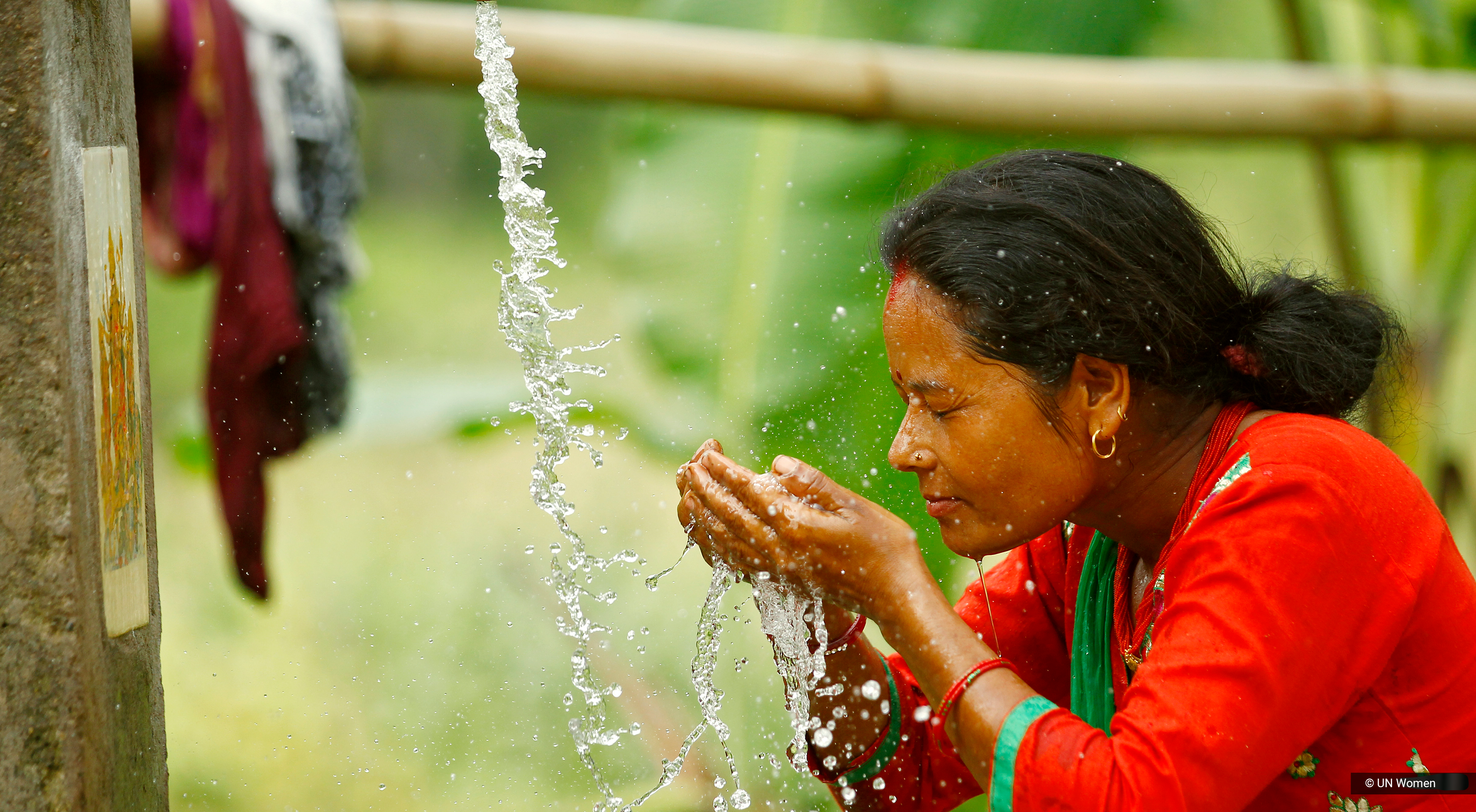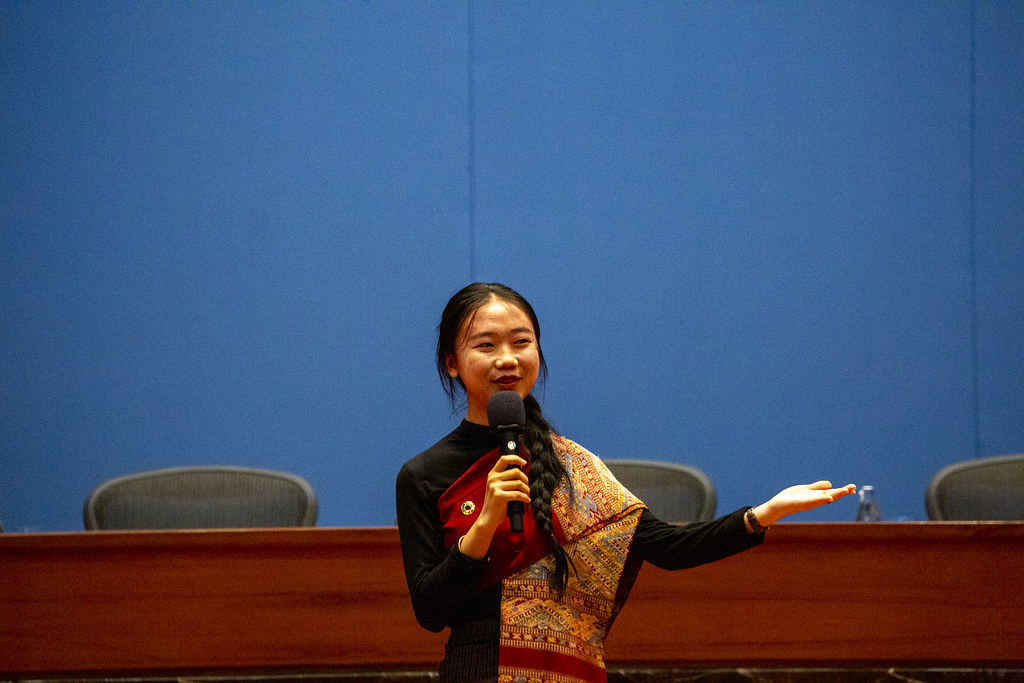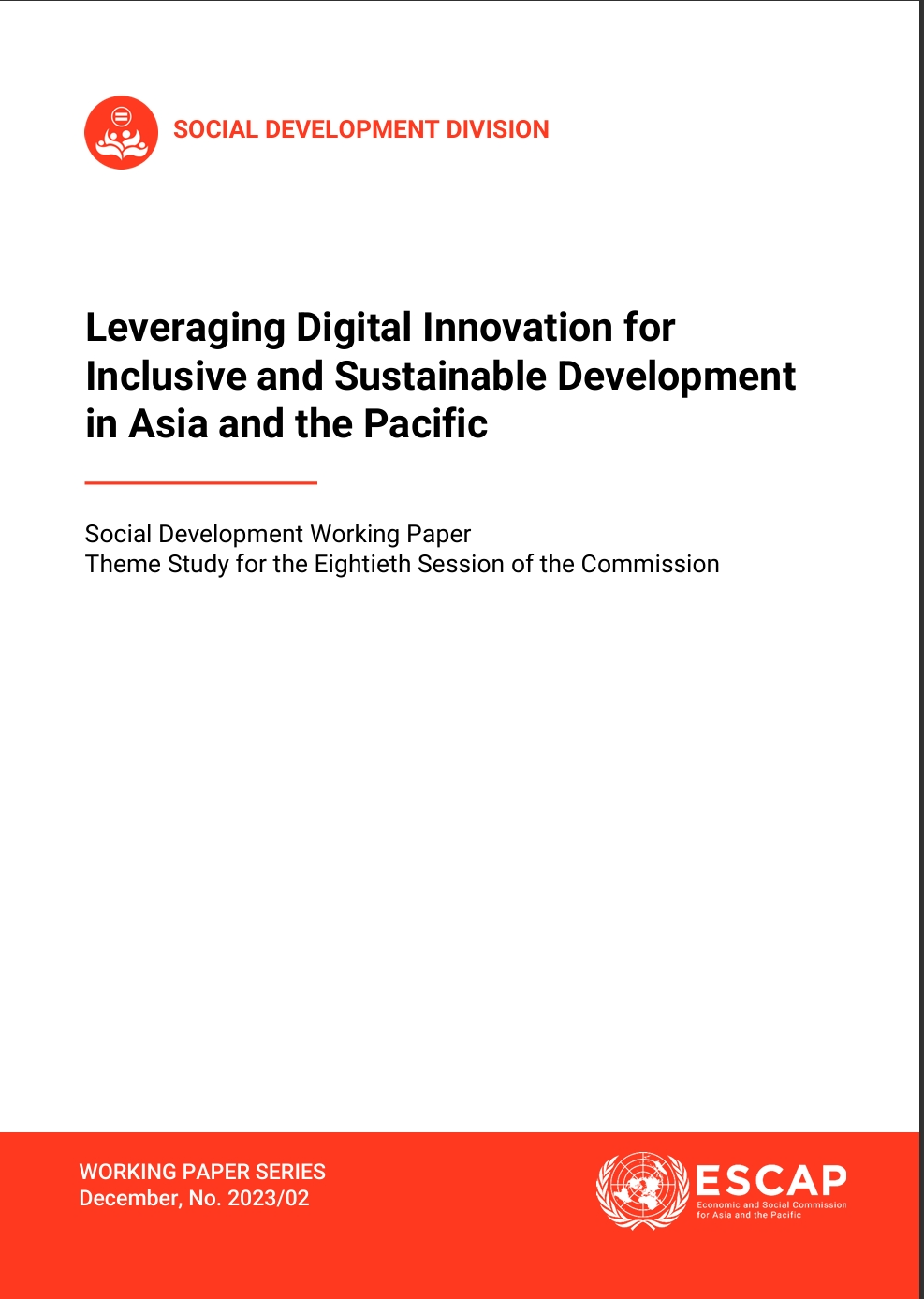

© UN Women/Vu Minh Hieu
Empowering Women in the Green and Digital Economies
ESCAP actively empowers women in the green and digital economies through a multifaceted approach that includes policy development, capacity-building, advocacy, and fostering regional cooperation. Recognizing that women's meaningful participation in these emerging sectors is essential for achieving inclusive growth and sustainable development, ESCAP systematically integrates gender perspectives into its work in areas such as climate action, sustainable transport, energy transition, digitalization, and economic empowerment.
ESCAP hosted the landmark Asia-Pacific Ministerial Conference on the Beijing+30 Review in November 2024, in collaboration with UN Women. This high-level forum provided a critical platform for governments and stakeholders across the region to assess progress, exchange best practices, and identify innovative approaches to advancing gender equality. A key highlight was the emphasis on the transformative potential of women's engagement in the green and digital economies as pathways to resilience, environmental sustainability, and inclusive economic growth.
The Asia-Pacific Regional Commemoration of International Women’s Day on 6 March 2025, jointly convened by ESCAP and UN Women, also spotlighted the transformative role of youth. Under the theme “For ALL Women and Girls: Equality. Rights. Empowerment”, the commemoration recognized youth-led innovations advancing gender equality, encouraged bold actions, and fostered stronger partnerships to promote sustainable and inclusive development, particularly in the green and digital economies.
Through strategic partnerships, targeted policy support, sustained advocacy, and capacity-building initiatives, ESCAP continues to create enabling environments that empower women as leaders and active participants in the green and digital economies. By championing gender equality in these transformative sectors, ESCAP contributes directly to inclusive, resilient, and sustainable development across the Asia-Pacific region. Click here to learn more.
Empowering Women in the Digital Economy

ESCAP supports initiatives that ensure women benefit equally from digital transformation. The Women ICT Frontier Initiative (WIFI), led by ESCAP’s Asian and Pacific Training Centre for ICT for Development (APCICT), is the flagship training programme to promote women’s entrepreneurship through ICT capacity development. Targeting women-led micro, small, and medium-sized enterprises, the programme also supports policymakers in building enabling environments for women entrepreneurs. The initiative equips women entrepreneurs with practical tools to manage disruptions and leverage digital transformation, offering specialized courses on:
- E-Commerce and Digital Marketing
- Digital Financial Literacy
- Data Analytics
- Business Continuity Planning
- Trust and Security in Digital Environments
- Digital Empowerment of Women Entrepreneurs
In addition, WIFI offers a dedicated policymaker track focused on enhancing the capacity of government officials to develop inclusive digital policies that promote women’s entrepreneurship in the digital economy.
To date, WIFI has reached 19 countries across the Asia-Pacific and has been localized into 8 languages. Its widespread uptake reflects its impact in expanding economic opportunities for women and promoting digital inclusion at scale.
ESCAP has also produced analytical products on the topic of the digital economy. The policy paper, "Leveraging Digital Innovation for Inclusive and Sustainable Development in Asia and the Pacific", presents key insights on using digital technologies to foster equitable growth. The paper offers forward-looking recommendations for policymakers, emphasizing the importance of data collection and cross-border digital cooperation in advancing the 2030 Agenda and shaping the forthcoming Global Digital Compact.

The Green Economy
ESCAP’s Social Development Division spearheads efforts to integrate gender into diverse sectors, developing practical tools and delivering targeted policy advice. In sectors traditionally dominated by men, such as sustainable transport and renewable energy, ESCAP actively promotes women's participation by addressing structural barriers and advocating for gender-responsive infrastructure and investment. This approach not only tackles gender inequality but also addresses climate change by leveraging women’s knowledge and leadership for environmental sustainability.
Recognizing the gendered impact of climate change, ESCAP prioritizes the intersection of gender and the environment. Women often face heightened vulnerabilities from environmental degradation and climate-induced disasters, including increased unpaid care burdens and economic insecurity. In response, ESCAP has developed gender-responsive policy recommendations and knowledge products that emphasize equal access to resources, climate-resilient agriculture, and women’s inclusion in climate-related decision-making processes.
A key contribution in this area is ESCAP’s policy paper, “Gender inequality, climate and environmental crises: Why they matter for sustainable development.” The paper employs an intersectional approach to understand the risks and challenges climate change poses for women and marginalized groups in Asia and the Pacific. Concluding with actionable recommendations, the paper advocates for a “whole-of-government” approach to mainstreaming gender in climate policies and strategies.
These themes were also central to the Asia-Pacific Regional Consultation on the Sixty-Sixth Session of the Commission on the Status of Women (CSW66), held in 2022 under the priority theme, “Achieving gender equality and the empowerment of all women and girls in the context of climate change, environmental and disaster risk reduction (DRR) policies and programmes,”. Jointly convened by ESCAP and UN Women, and in collaboration with UNDP, UNEP, UNDRR, UNFPA, and UNICEF, the consultation brought together policymakers, civil society, and international organizations to align regional priorities and galvanize joint action.
Knowledge Products







